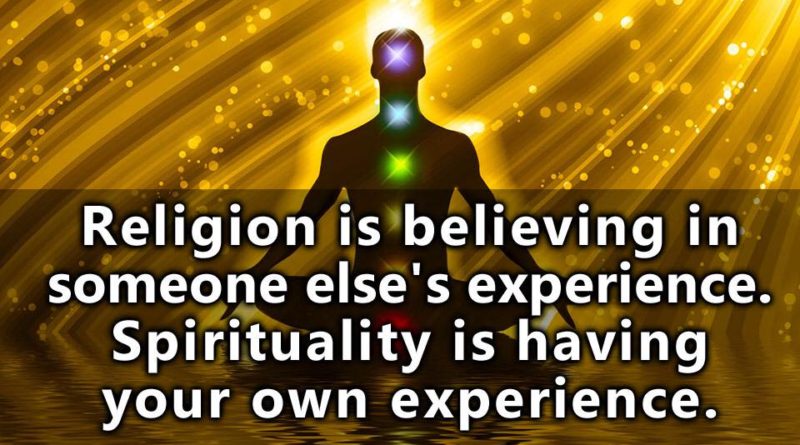
Have you at any point heard somebody state they are profound however not religious? This is a typical response for individuals who don’t pursue a specific religion, however who have confidence in a higher power. What is the distinction among religion and otherworldliness? This inquiry is a troublesome one to approach, and the appropriate response will enormously rely upon who you ask, yet in shortsighted terms: religion is a “pathway to God” and otherworldliness is a more extensive term, incorporating religion, basically saying there’s an association among humankind and something “bigger.”
Religion
There are numerous religions drilled everywhere throughout the world, and numerous supporters will contend that their religion is the one to pursue and put stock in. Generally rehearsed religions include: Paganism, Christianity, Buddhism, Judaism, Hinduism, Muslim, Confucianism, Daois, Asatru, Atheist and Agnostic, Pantheist, New Age and the rundown goes on. Every religion accompanies their own arrangement of convictions about what god’s identity is (or whether He even exists in any case) and how to live through Him, to accomplish the most ideal the great beyond. Every religion has its own arrangement of convictions in regards to what befalls the individuals who don’t rehearse as they should, and their very own elucidations of their Holy books, for example, the Bible, or the Koran. Despite what religion you guarantee to be, you have your own contemplation and sentiments about its guiding principle, and you are responsible for how well you live by them. Nobody individual can say a specific religion is superior to another for any reality. When you pick a religion to pursue, you pick the one you best relate to, and can have confidence in the most.
Other worldliness
The individuals who are otherworldly don’t really abandon religion, yet the individuals who don’t relate to a specific religion can even now view themselves as “profound.” Those who accept human presence to be a small amount of the general condition, that is, the individuals who accept mankind to be a piece of something bigger, are otherworldly. They might not have the appropriate responses with respect to what that bigger something is, and they may not realize how to depict it, however they don’t accept we are here as the sole creation. It isn’t really “God” they trust in, yet they don’t limit the presence of a higher power. Religion gives individuals who tail them a particular arrangement of convictions to enable them to calibrate their other worldliness, while the individuals who don’t pursue a religion are increasingly open to elucidation of their own convictions, in view of what they know and involvement in their everyday lives.
Despite what religion you could conceivably pursue, other worldliness is a more extensive term that includes every last bit of it. Despite the fact that you may never pursue any religion, or you may change your religion, every last bit of it falls under being profound. No one but you can choose being “religious” or being “otherworldly.